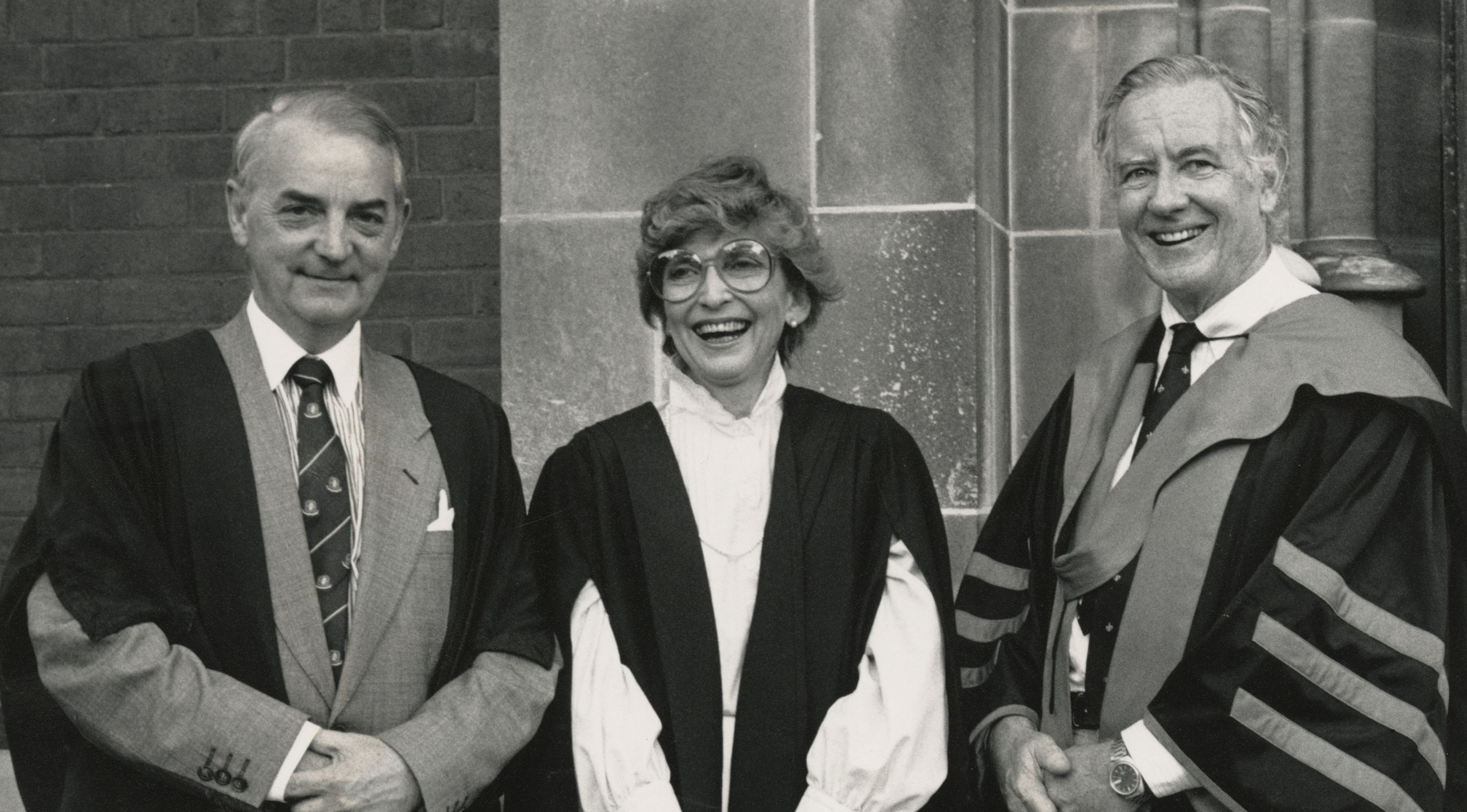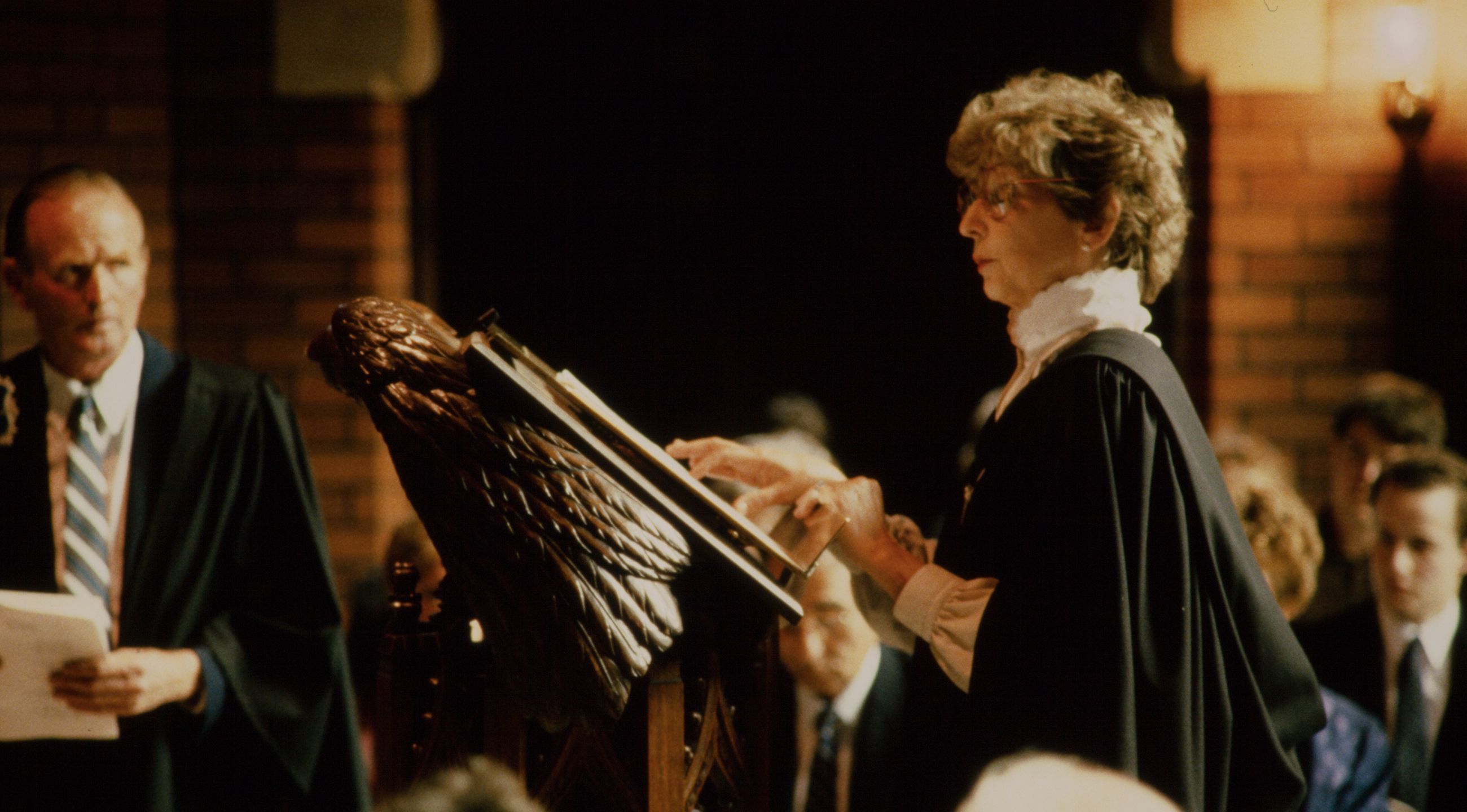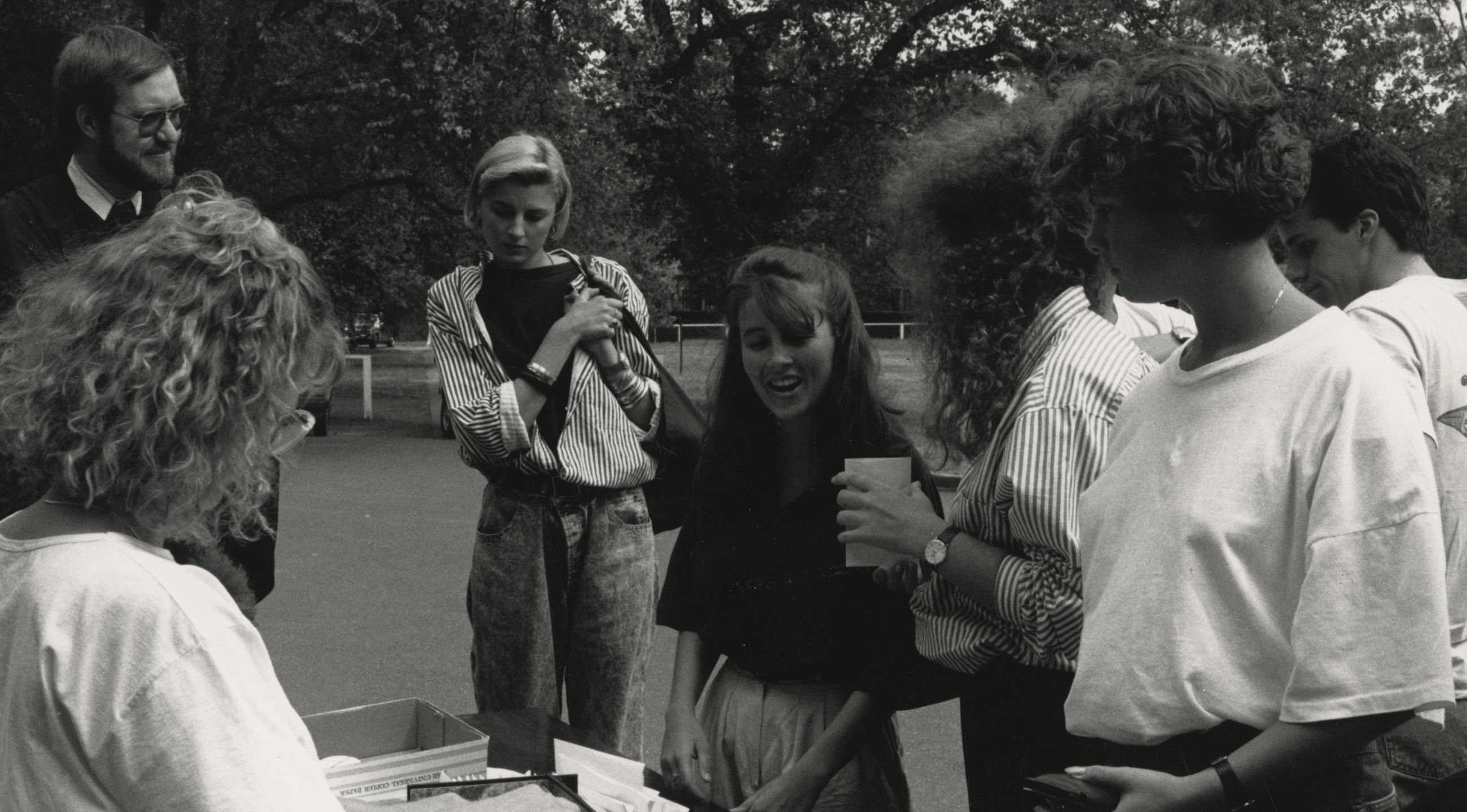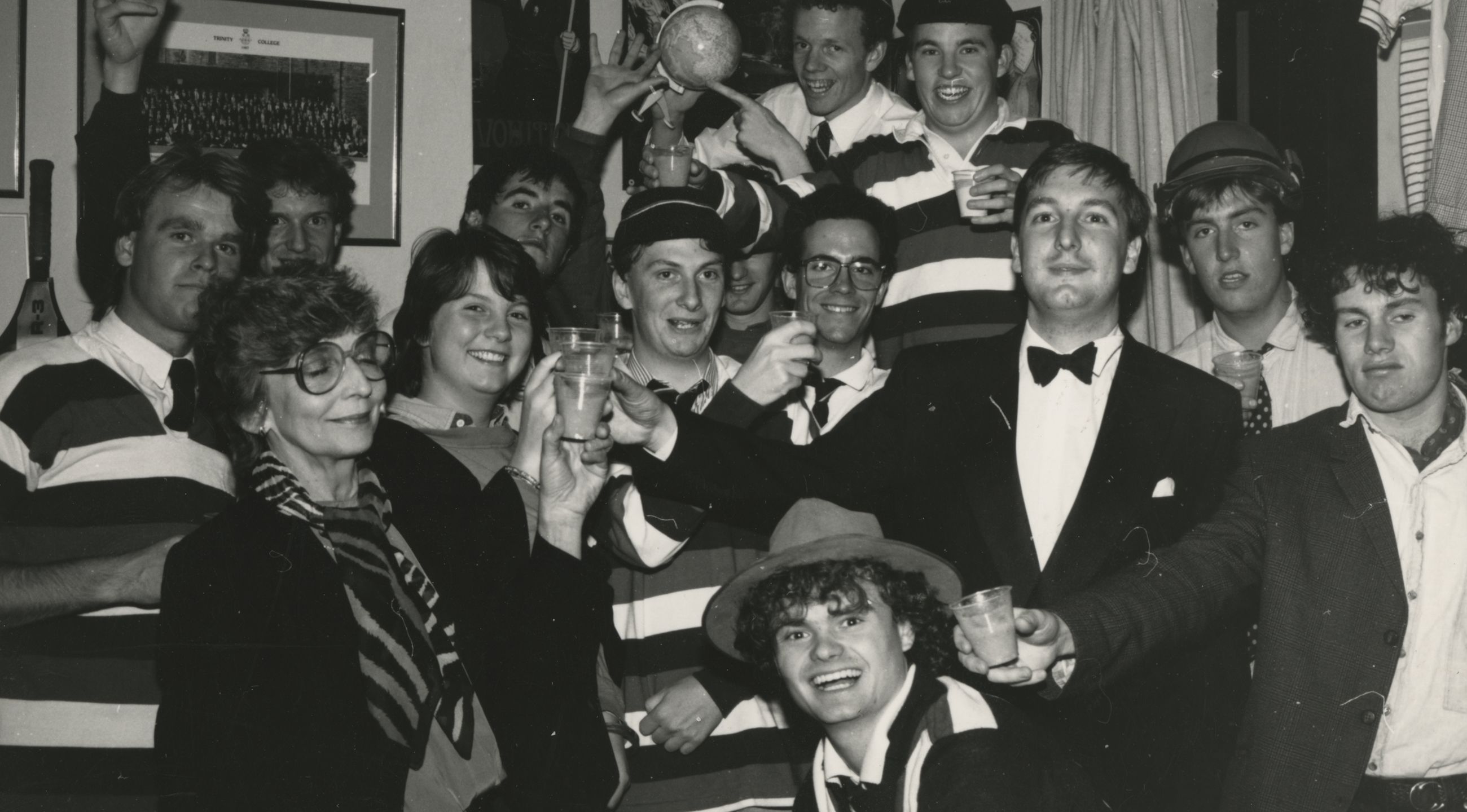Leith Hancock
Trinity's first woman Dean

Mrs Leith Hancock has already proved herself a popular, highly competent, dedicated and valued colleague and College officer. During the admissions period she has worked hours far beyond the call of duty.
Leith Hancock, Trinity's first female Dean of College (at the time the only Dean role), commenced in her position at the beginning of 1988. Much admired by her colleagues and the student community alike, her time in the role was unfortunately brief. Warden Evan Burge, somewhat prophetically, noted at the end of her first year, 'My only worry about her is her tendency to keep working when she ought to take a break'. Health issues forced her retirement in 1990.
Her legacy continues at Trinity however, through the Leith Hancock Scholarship. In 2022, Hancock's continuing support of Trinity was recognised by the College Council through her appointment as a Fellow.
This article was first published in the Trinity College Newsletter in April 1988.
Mrs Leith Hancock was installed by Bishop James Grant as Dean of Trinity College at Choral Evensong on the first day of term, Monday 7 March 1988. She succeeds Dr Peter Wellock, who is now Warden of Christ College, Hobart, and is the first woman to be appointed as Dean of Trinity.
Her duties include deputising for the Warden as required, being responsible for the organisation of Trinity's extensive tutorial system of about 80 classes each week and for the welfare of the resident tutors, supervising the admissions program, which now involves the selection of about 90 students out of over 300 applicants who are all interviewed individually.
As well as the academic program, the Dean is responsible for the good discipline of the College, a task which is currently delegated to the Sub-Dean, Mr Tom Egan, except in serious cases.
A special dinner in the Hall followed the Chapel service of installation. Former Deans living in Melbourne were invited and the Reverend and Mrs Ray Gregory, and Dr Rod Fawns and Dr Rosemary Fawns (the first woman member of the Senior Common Room) were able to attend.
Bishop Grant and the Warden spoke on the Great Rebellion following the closing of the Buttery in 1933 and the origins of the deanship as a buffer between the Warden and the students. The Warden paid tribute to the 13 Deans from then until now and observed that Leith Hancock was entering a distinguished succession.
During 1987, Leith Hancock was involved part time in Trinity as Director of Studies. She was then concerned largely with the academic welfare of student studies and the inauguration of "Faculty Dinners". These are dinners where the students of a given faculty or discipline meet informally over dinner with their lecturers and tutors.

Like the Warden, Leith Hancock is an Arts graduate of the University of Queensland. She majored in psychology, became a mother of five children, and came to Melbourne in the early 1970s to join the Student Counselling Service of the University of Melbourne.
After achieving widespread respect within the University for her work in the understanding and teaching of study skills, she was appointed Warden of Medley Hall.
In seven years at Medley Hall, she succeeded in imprinting many of the most worthwhile aspects of a collegiate ethos upon this hall of residence and made a valued contribution to the Heads of Colleges Association.
After retiring from Medley Hall at the end of 1986, she came to Trinity and found herself warmly and widely welcomed by staff, tutors and students alike.
At her welcome dinner in Hall last March, Leith Hancock said that she was honoured to be the first woman Dean and that it was "perhaps timely" now that almost half of the resident students were women.

She went on to say that she had two convictions forged over time – the existence of God and the importance of the family.
"My God" she continued "is not the God of my childhood – the bearded father-figure sitting in heaven above the clouds somewhere, all-seeing, both wrathful and forgiving. That image didn't survive my undergraduate years and a philosophy major. Nor was it replaced with any other for a long time. It took the experience of human joy and pain, loss and confusion – and a few little miracles (five in fact) for a personal faith to emerge.
My miracles were the births of my five children. Each time it brought an inexplicable rush of pure joy and thankfulness that quite eclipsed any pain and discomfort. There had to be a force human and beyond the human. I now believe that God is the good in us – in what we are.
There is also the bad as there is right and wrong in us – the two polarities, with a great deal of grey in between. For me, time in the Chapel (and in the bush) brings quiet, a cessation in the "busy-ness" of daily life.
To my second (and connected) conviction – the family. We all belong to one. The healthy family system has rules and limits set first by the parents and with sufficient elasticity to allow for individual growth and development. The hardest thing for parents is to know when and how much to loosen the reins and when to let go altogether. So be patient with them. Your turn will come!
There is no such thing as a "happy" family, that is, one in which all is sweetness and light all the time. The healthy family is one where the bonds of loyalty and mutual regard are strong – but not imprisoning; where trust and open communication exist; where conflict occurs and can be resolved through negotiation and (often) compromise; where members can and will give a little to accommodate others, listen to and respect other points of view, other priorities and goals.
My notion of family extends beyond our own one of "blood".
The Warden often speaks of the Trinity family (some 4000 strong). Each of us here belongs to it, along with the many who came before and will come after.
What motivates me in accepting the deanship is not the salary (though that's useful) and not the title (though I'm proud to wear it) but the chance to have a place and a role in this great family.


Dr Ben Thomas, Rusden Curator, Cultural Collections
Dr Ben Thomas, Rusden Curator, Cultural Collections





